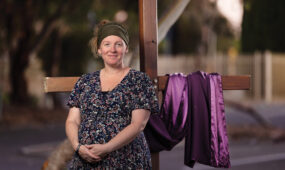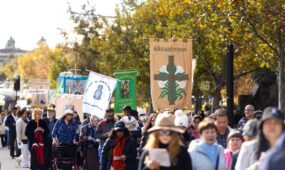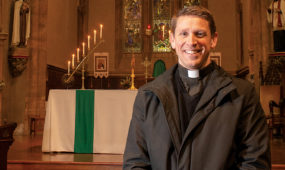Foster care at crisis point
Local
Demand for foster care in South Australia is at “crisis” point with a national report showing more foster carers are leaving the child protection system than being recruited.

The Australian Institute of Health and Welfare’s annual report on child protection showed 130 individuals or families became foster carers in South Australia in 2016-17 and 153 stopped being carers.
There were 9.5 in every 1000 South Australian children living in State-run homes, foster families or with relatives during that period, compared to 7.4 per 1000 five years ago. The total number of children in out-of-home care was 3484, compared to 2657 in 2012-13.
Centacare Catholic Family Services foster care program manager Amalie Mannik said the alarming statistics highlighted the urgent need for foster carers.
Advertisement
“The State really is in crisis and in need of foster carers at the moment,” she said.
“If people are thinking about becoming a foster carer, they should enquire now.”
Ms Mannik said that it typically takes four to five months to complete the assessment and training process required to become an approved foster carer.
Currently, the Centacare program has capacity to assess and support more carers and is responsive to enquiries.
The aim of the program, which has been running for four years, is to provide safe and nurturing homes for children, whilst their birth families are supported in building their resources and parenting capacity, to enable safe reunification.
Ms Mannik said the program had changed recently to enable different types of care to be provided.
While reunification with birth families remains the main focus, she said it was now possible to retain the same carer, within Centacare’s program, if reunification was not successful. The age limit had also changed with children up to 17 years now able to be placed (previously the upper age limit was 12).
“There is much more flexibility now – we can be responsive to the need,” she said. “It’s about maintaining consistency for both the children and the carers within our program.”
Ms Mannik said the key attributes of foster carers were “playfulness, acceptance, curiosity and empathy”, as well as personal resilience and the ability to be part of a “care team”.
The program encouraged diversity of carers with retirees welcome. She also said Indigenous carers were desperately needed because a third of the children were Aboriginal and “we recognise the importance of maintaining, encouraging and respecting cultural connection, for Aboriginal children in care”.
Centacare provides a 24/7 wraparound service for carers, which means they can talk to someone at any time of the day or night, if they require support.
With a 60 per cent success rate for reunification, Ms Mannik said support also was provided to help carers deal with the grief associated with separation. However, most found it rewarding to see the children back with their birth families and some even met for “a coffee or a catch up” to maintain a connection with the child. Another positive aspect was the effect on the carers’ own children, such as providing them with a sense of gratefulness, increased awareness and developing a caring attitude towards helping others.
Advertisement
“Carers say it helps their own biological children or grandchildren to understand the privileged background they come from,” she said.
“When a carer experiences a successful reunification their typical reaction is to respond with ‘when are we going to be able to care for another child?’ as our carers love the opportunity to care for and help children.”
Centacare is keen to hear from any potential foster carers. All enquiries can be directed to fostercareenquiries@centacare.org.au or phone 8159 1400.








Comments
Show comments Hide comments